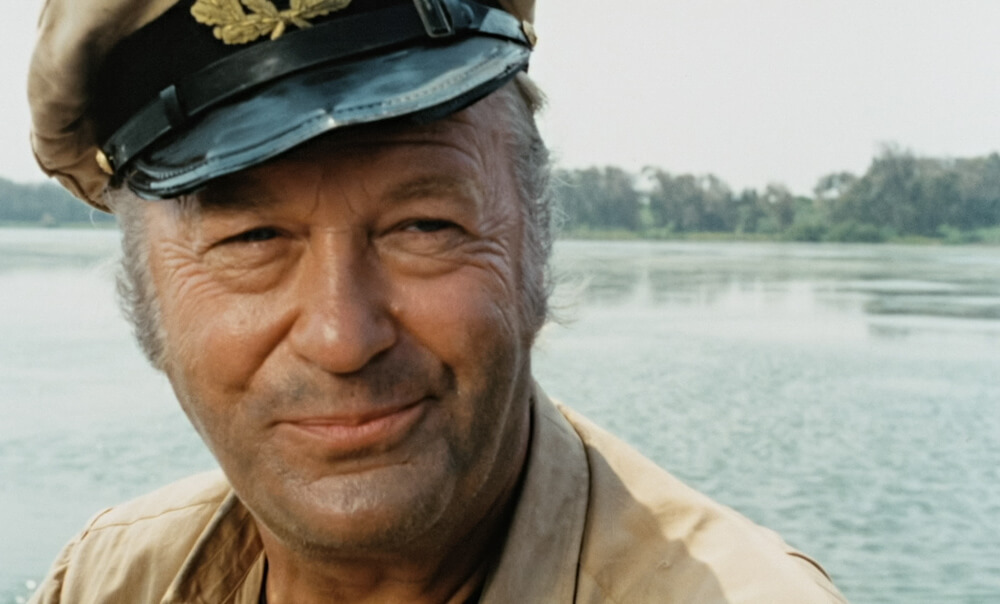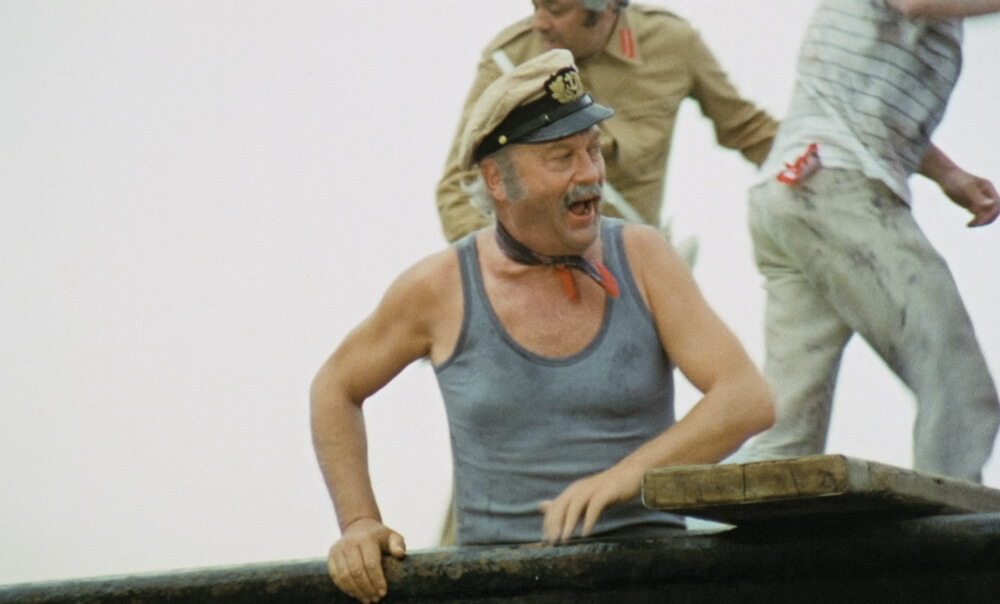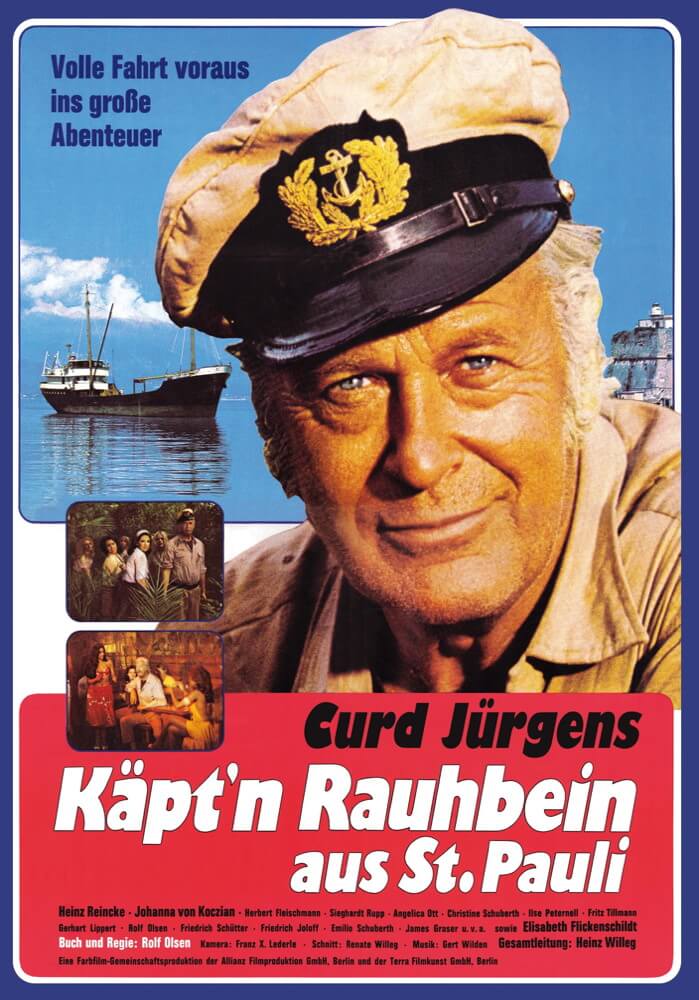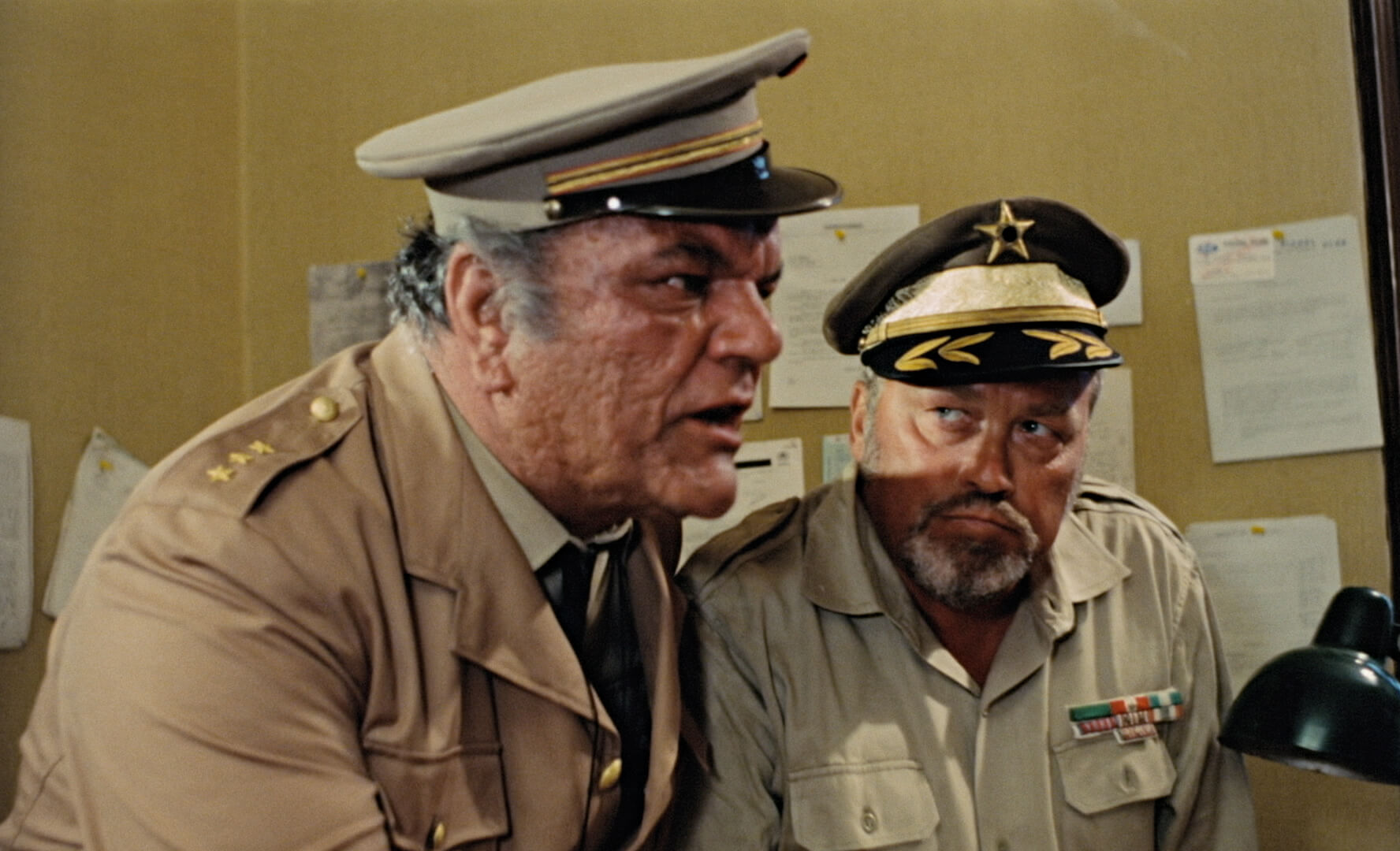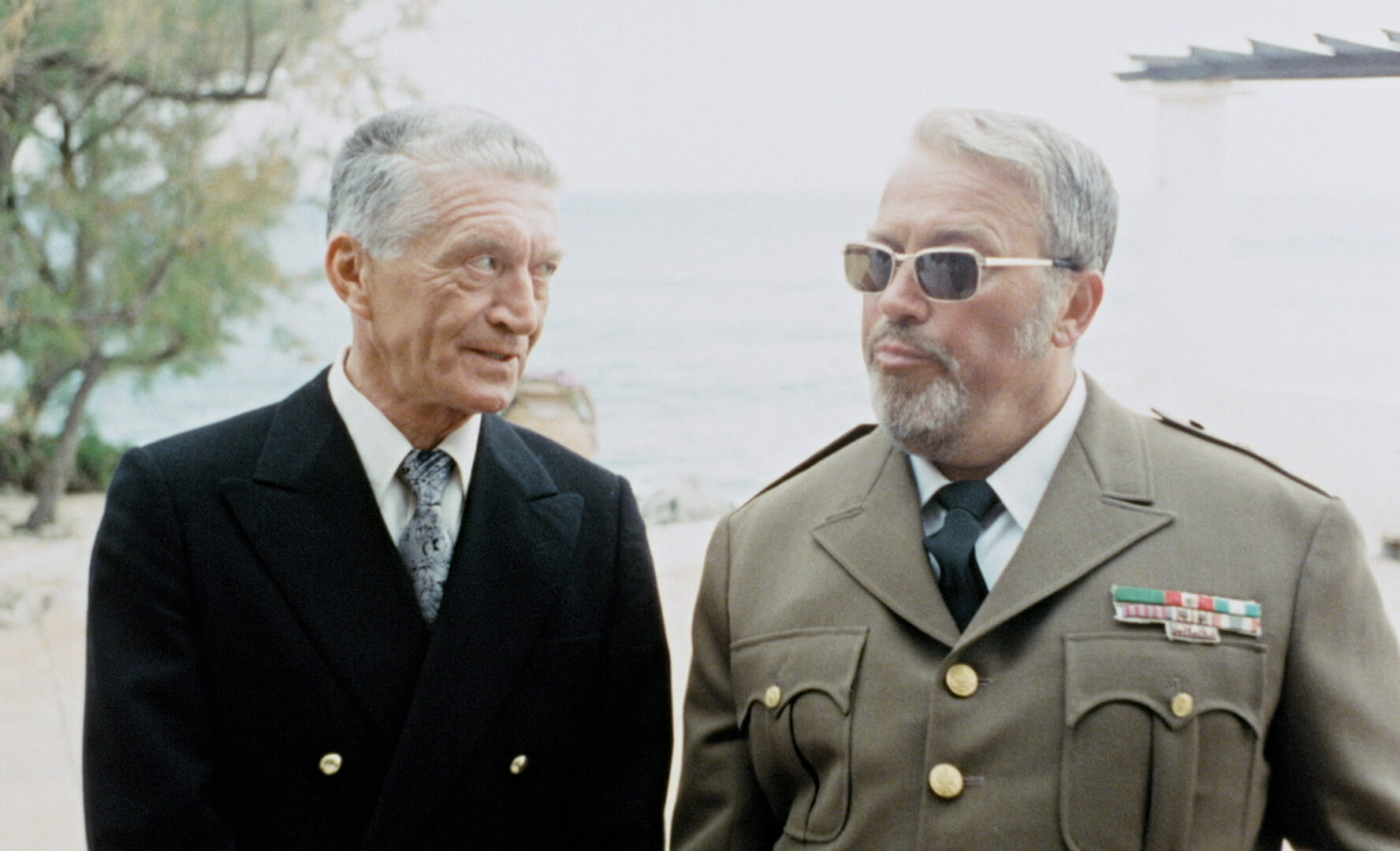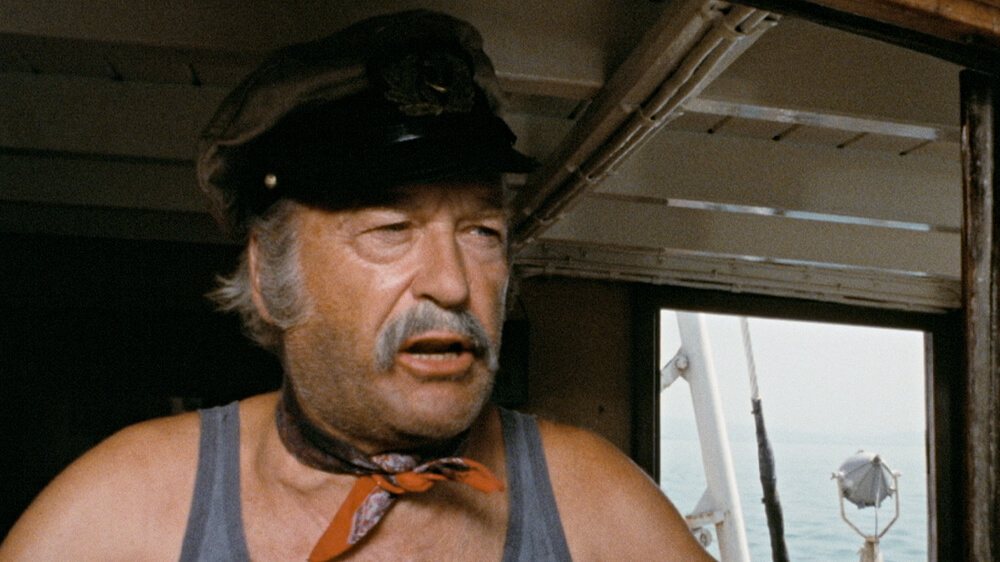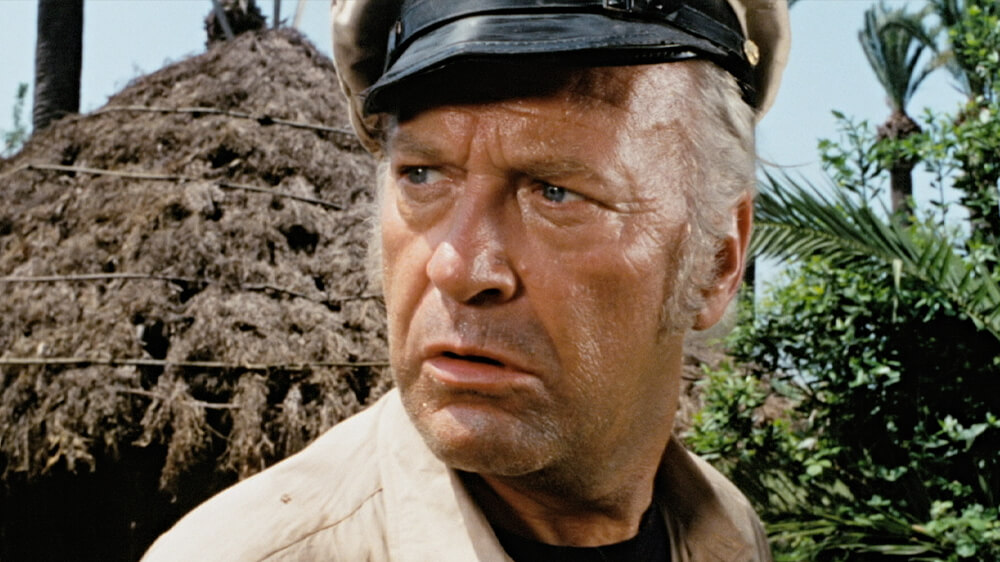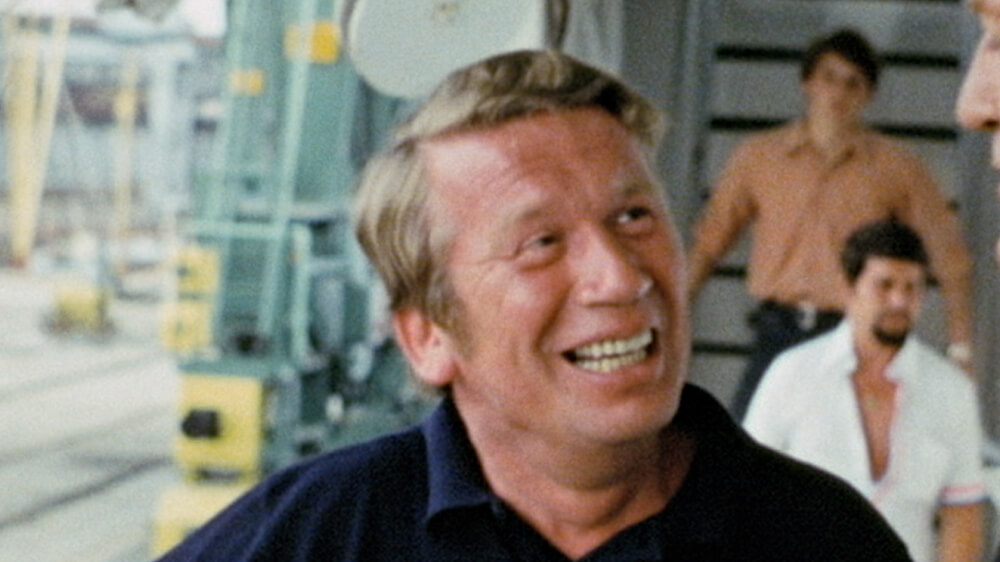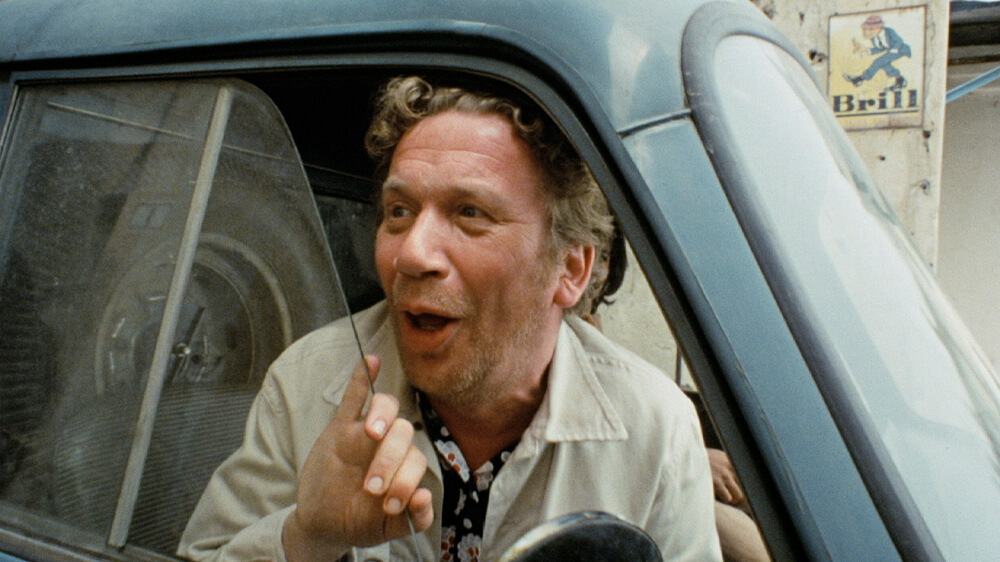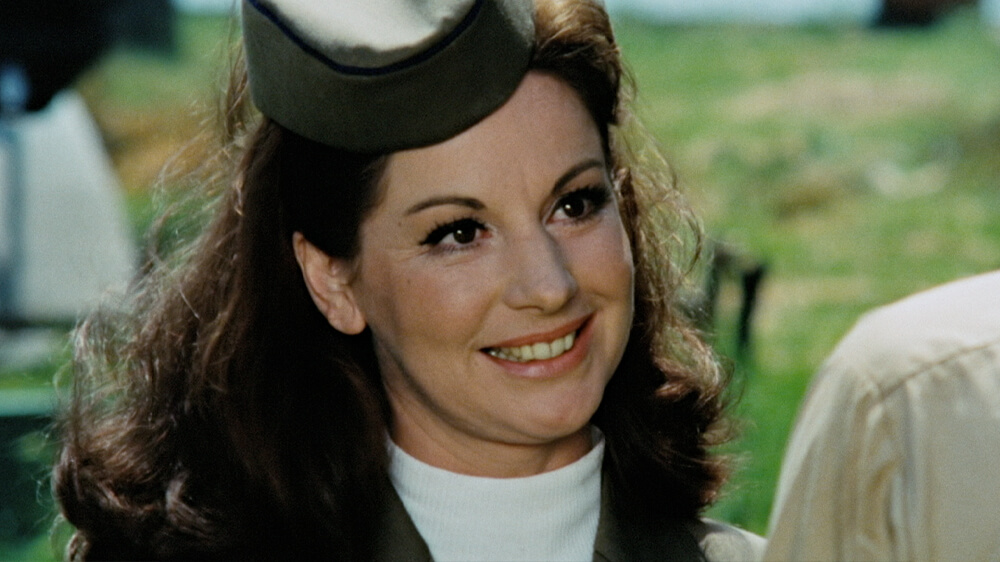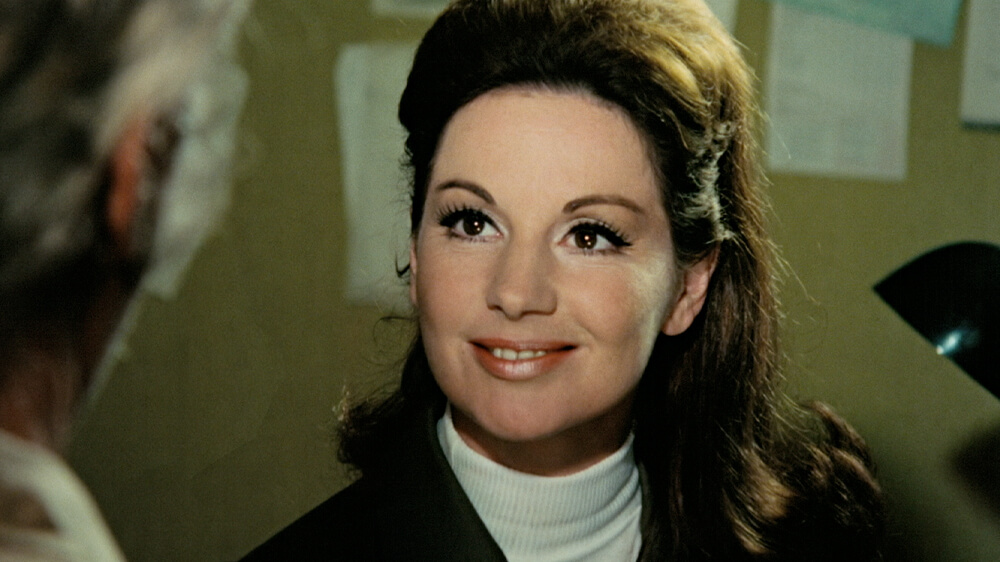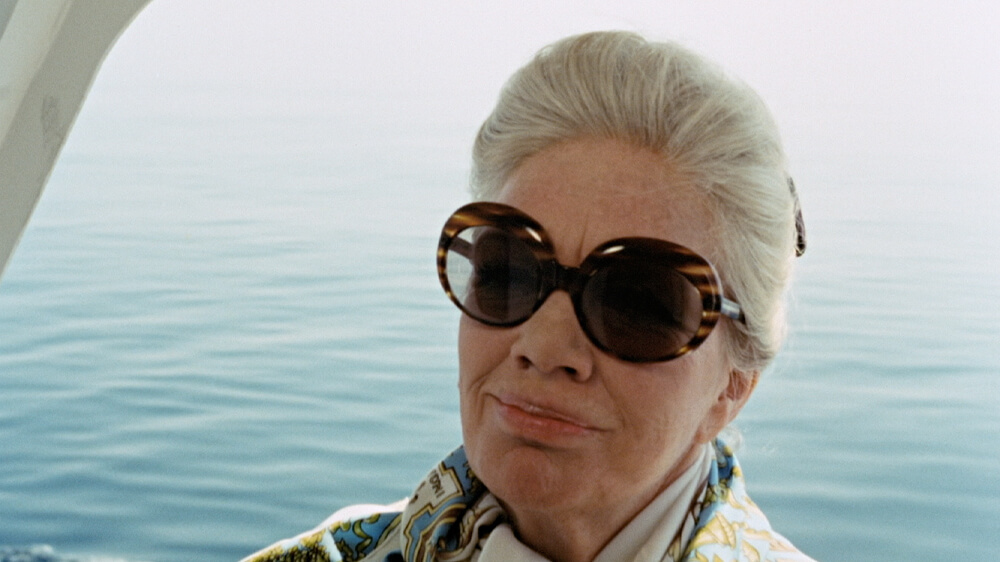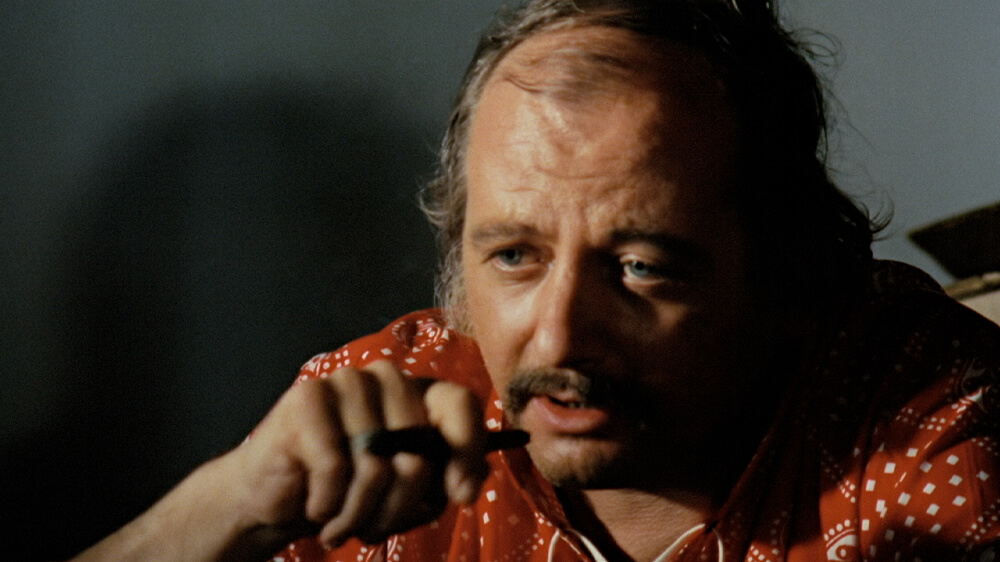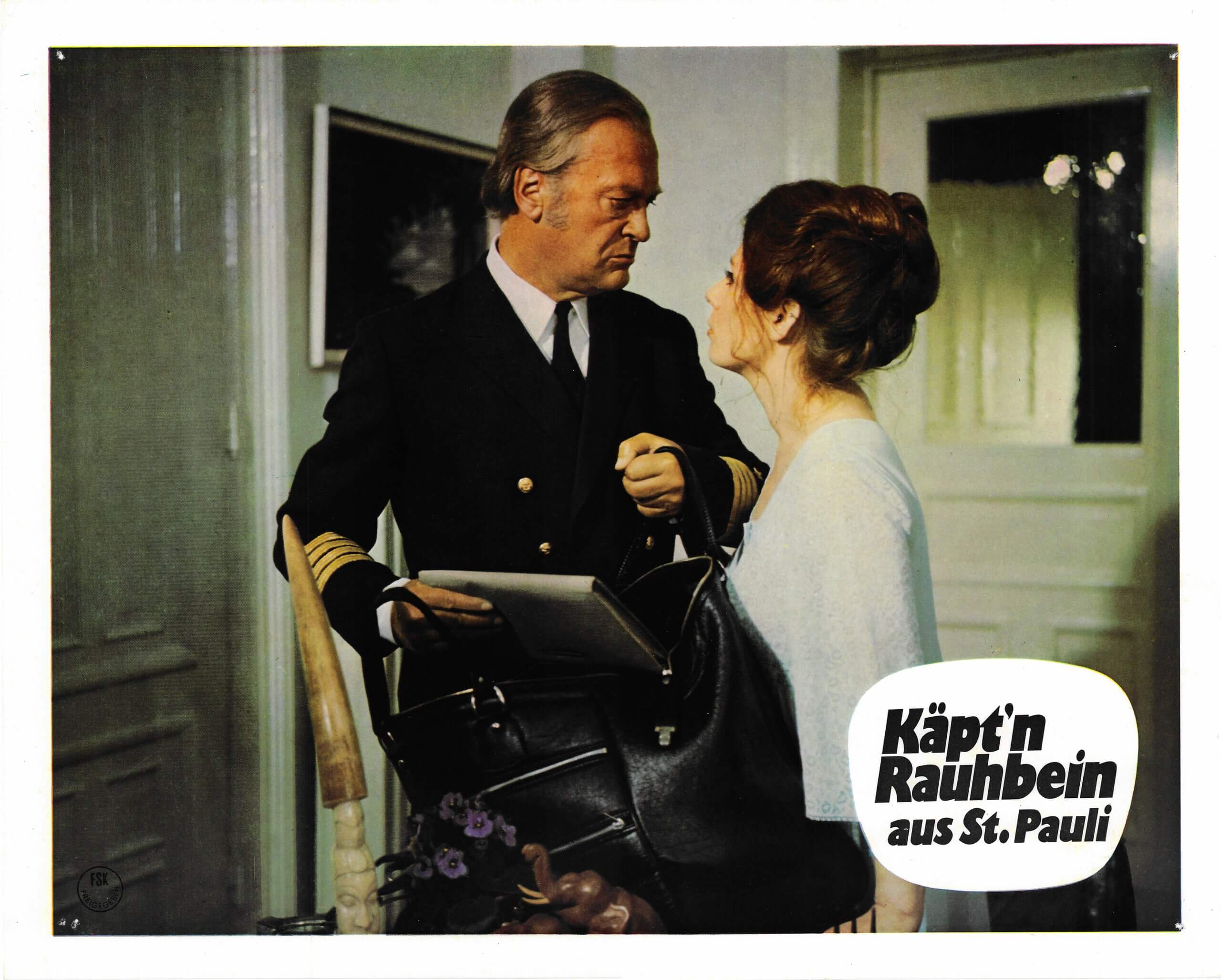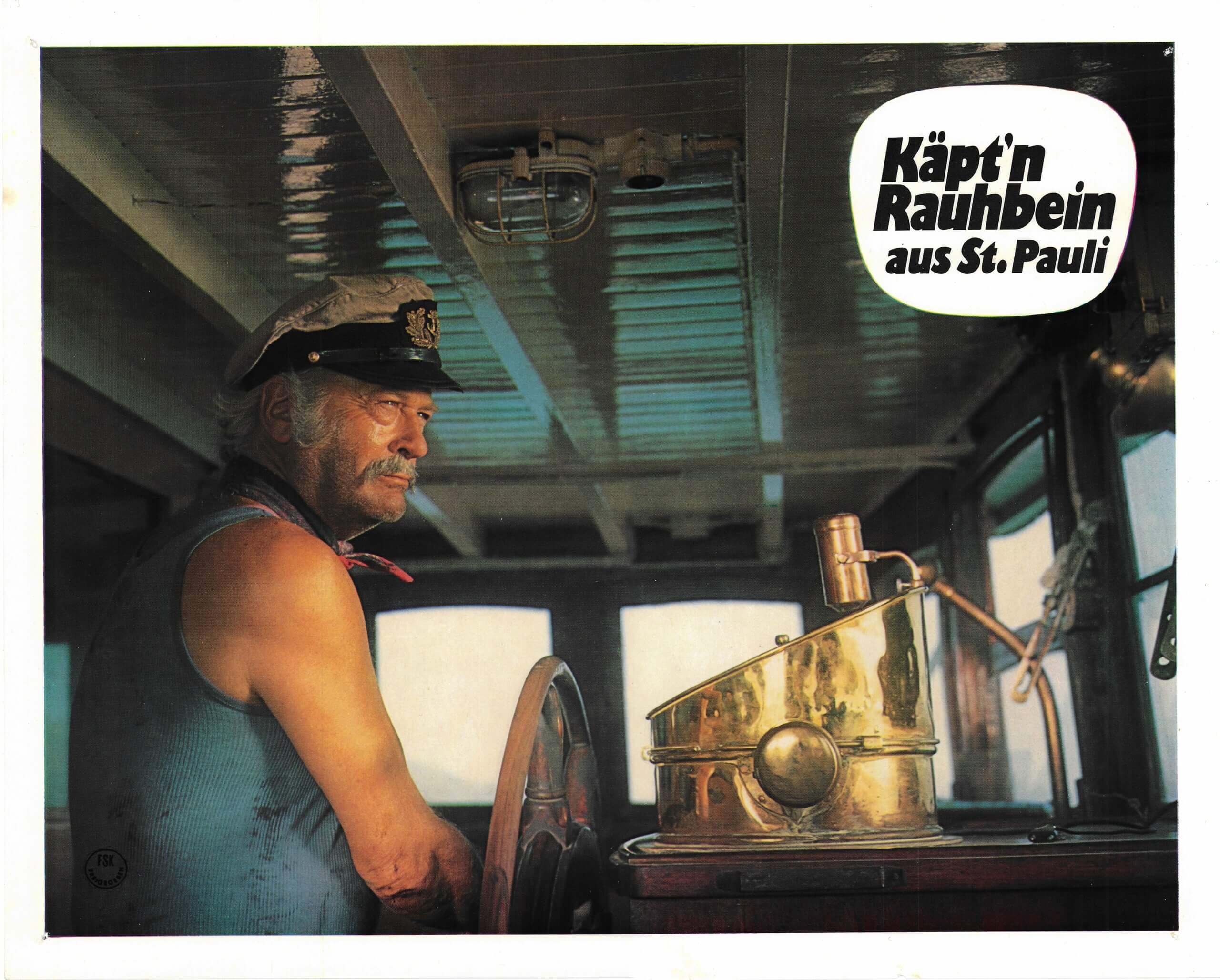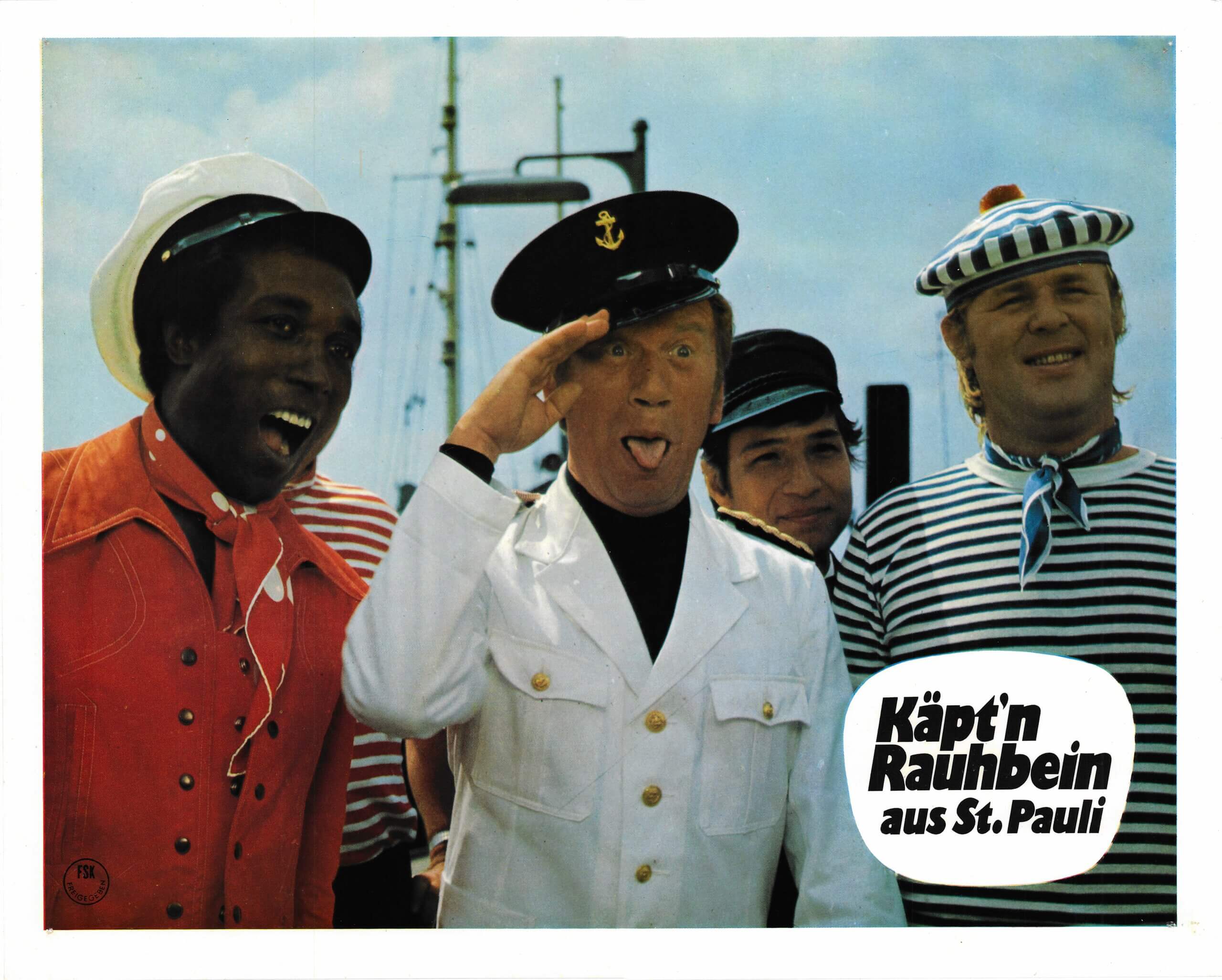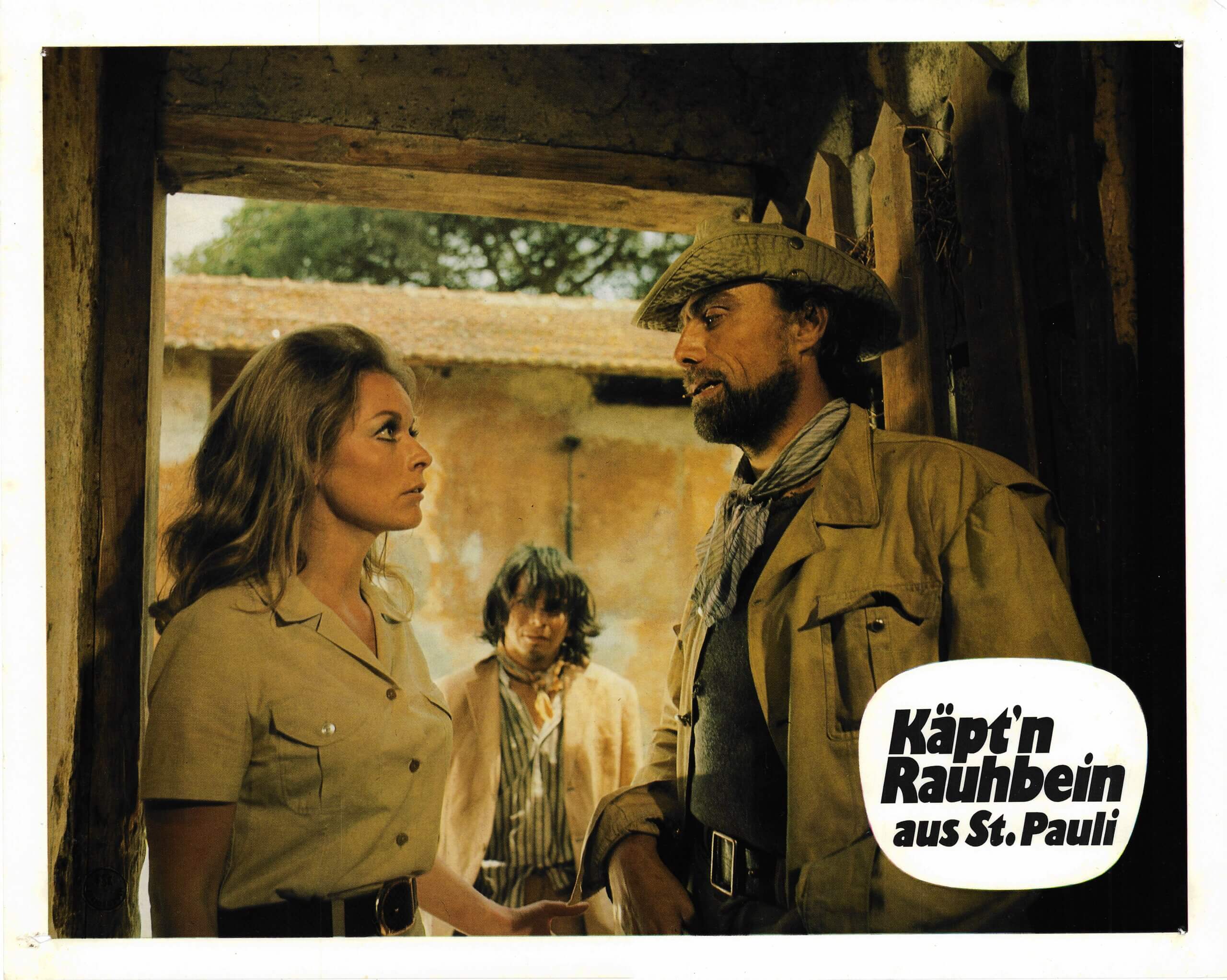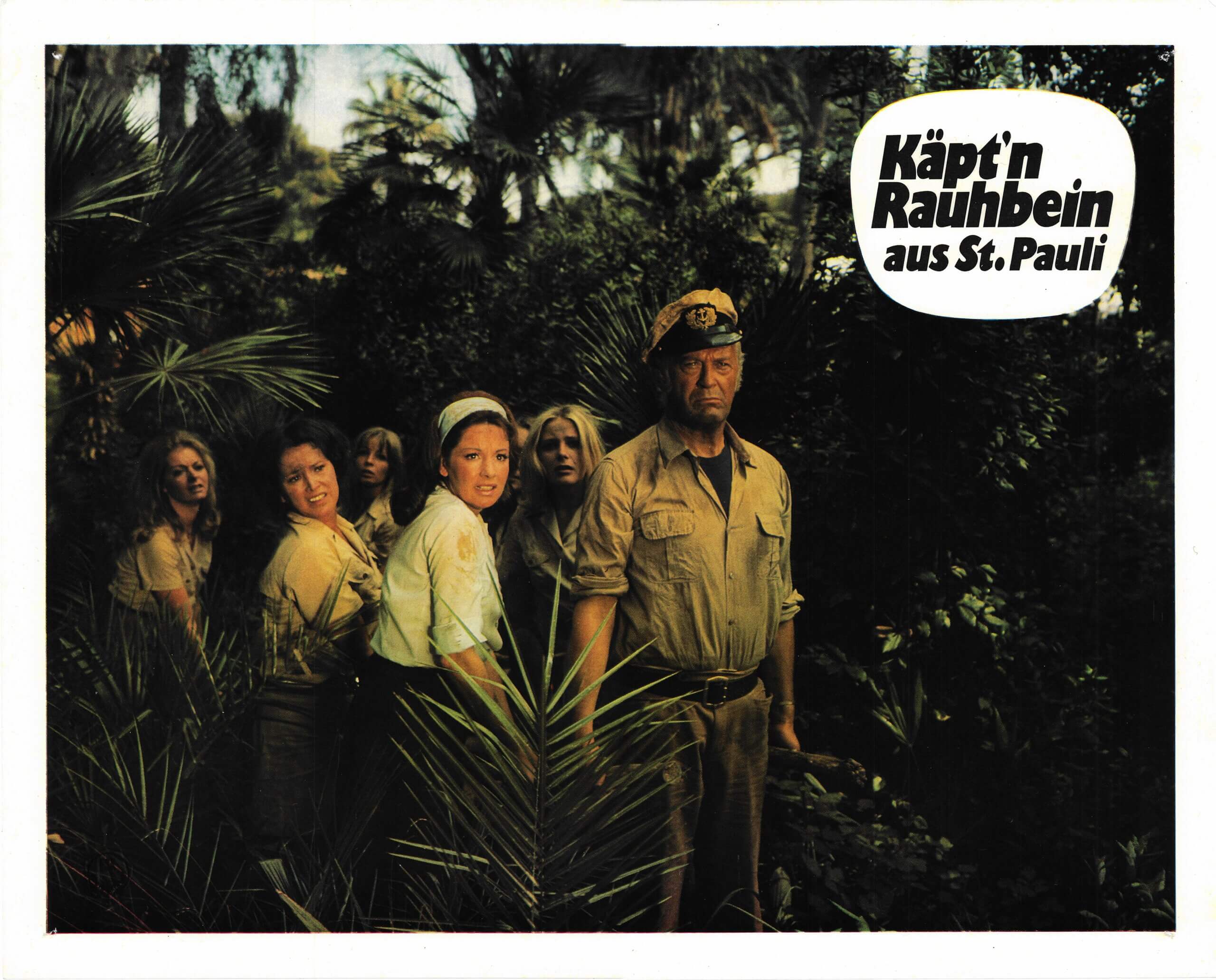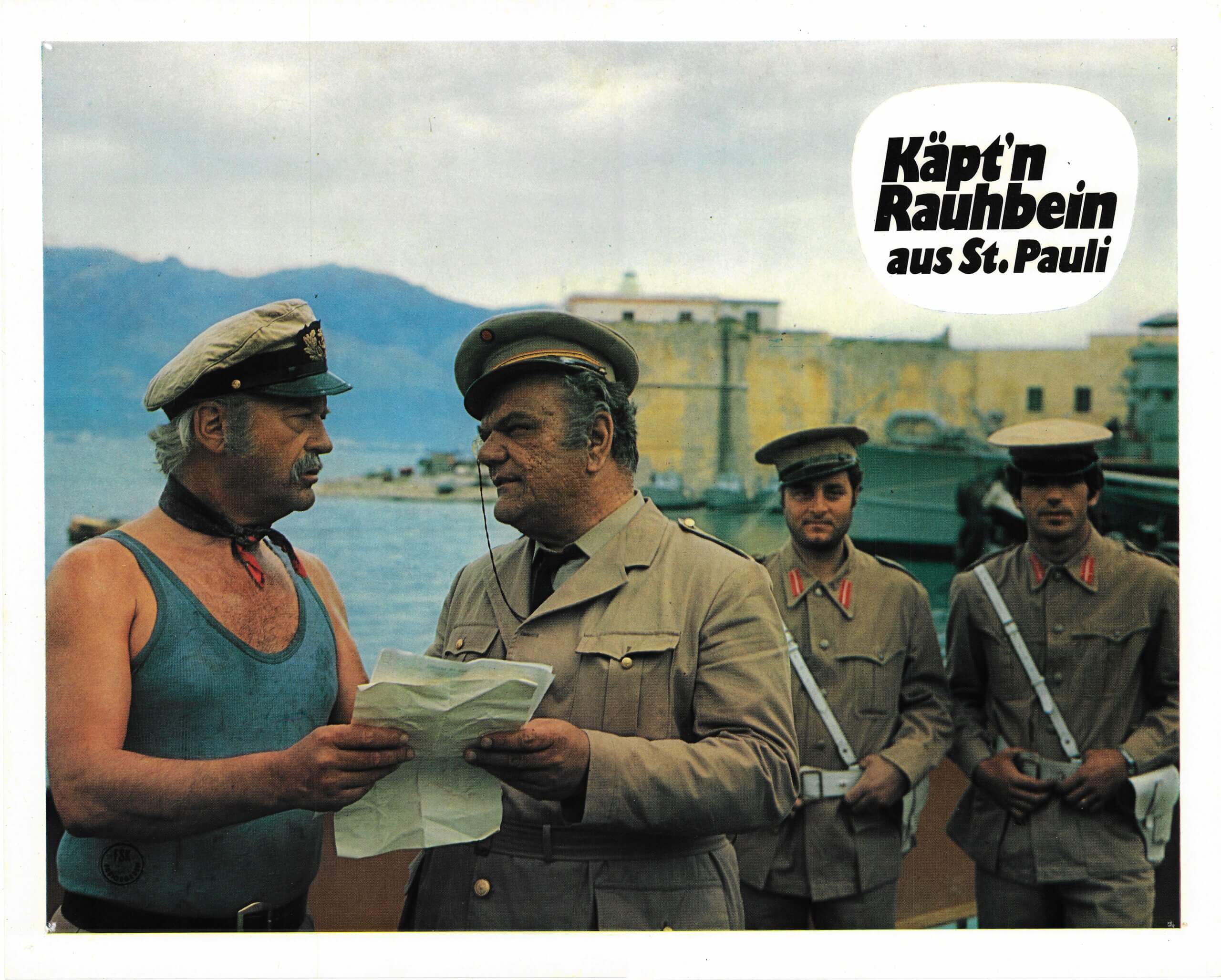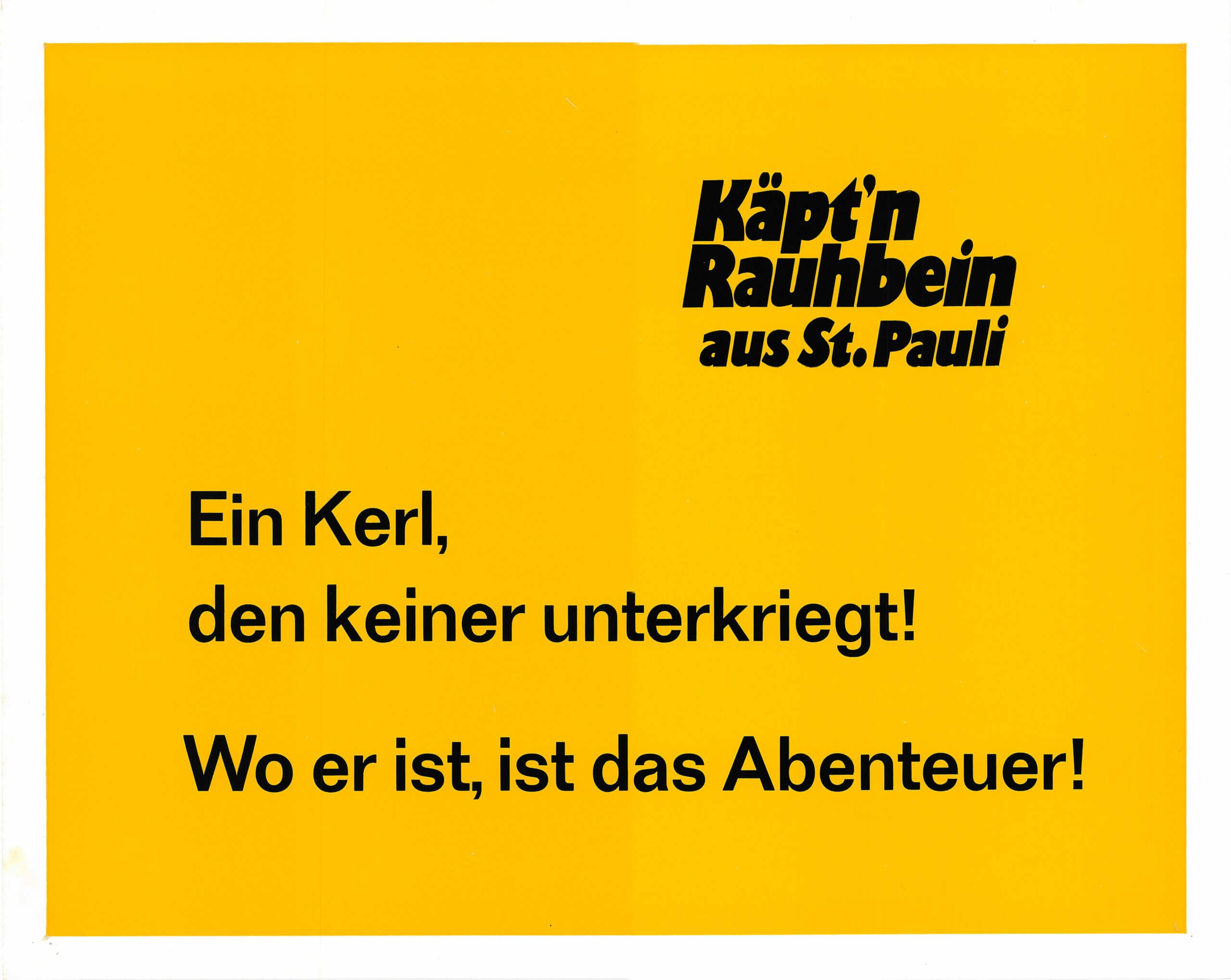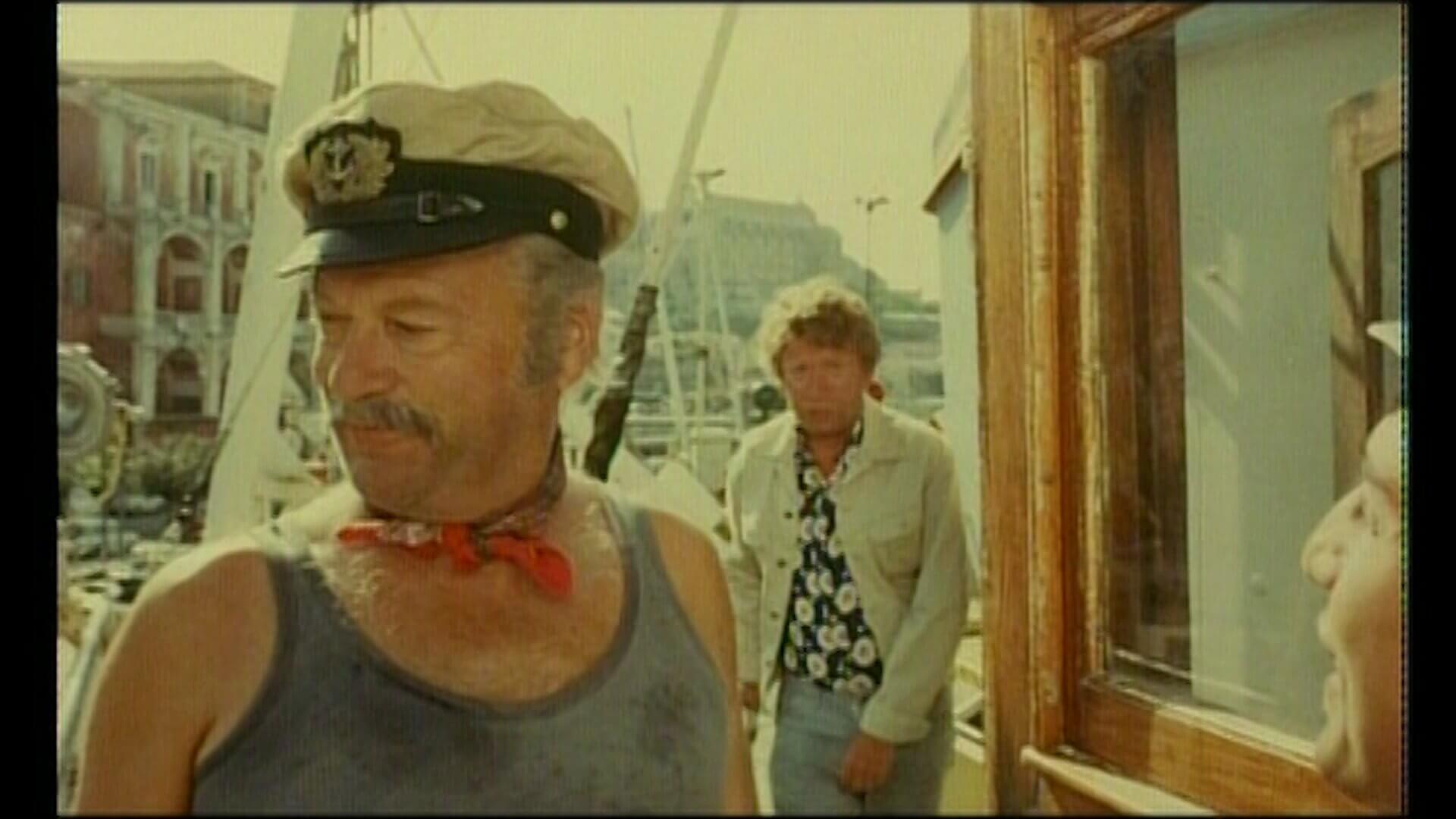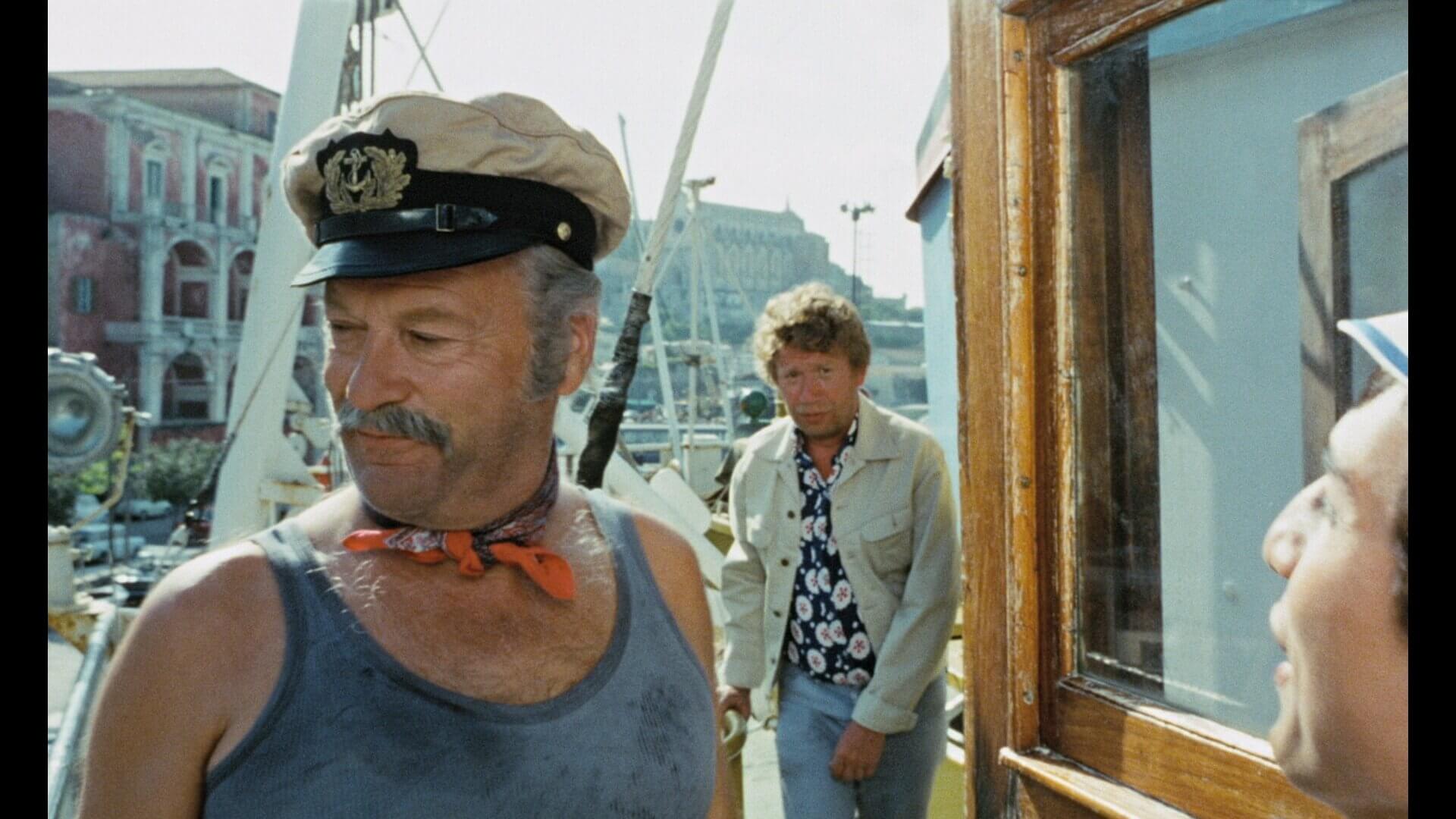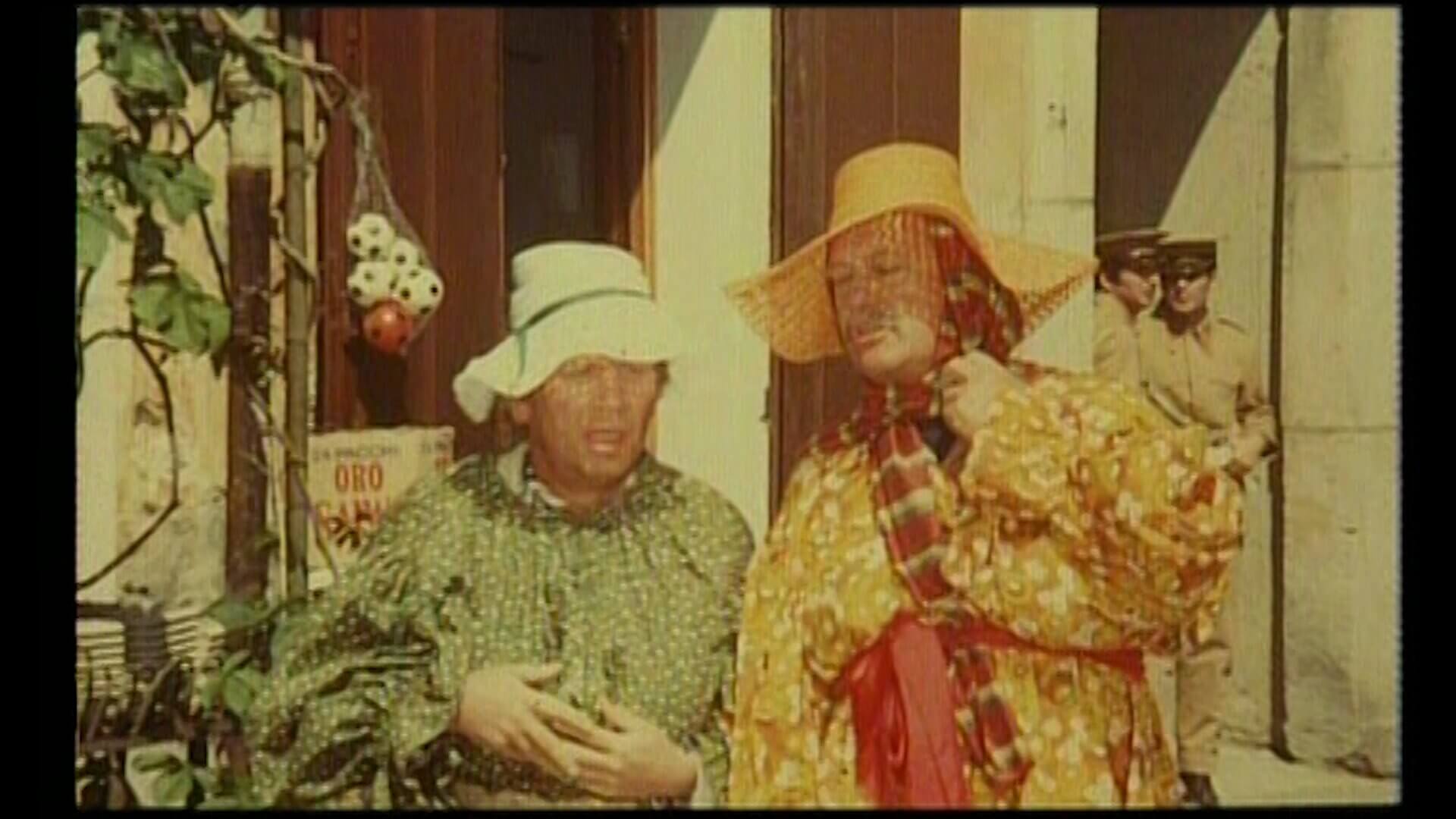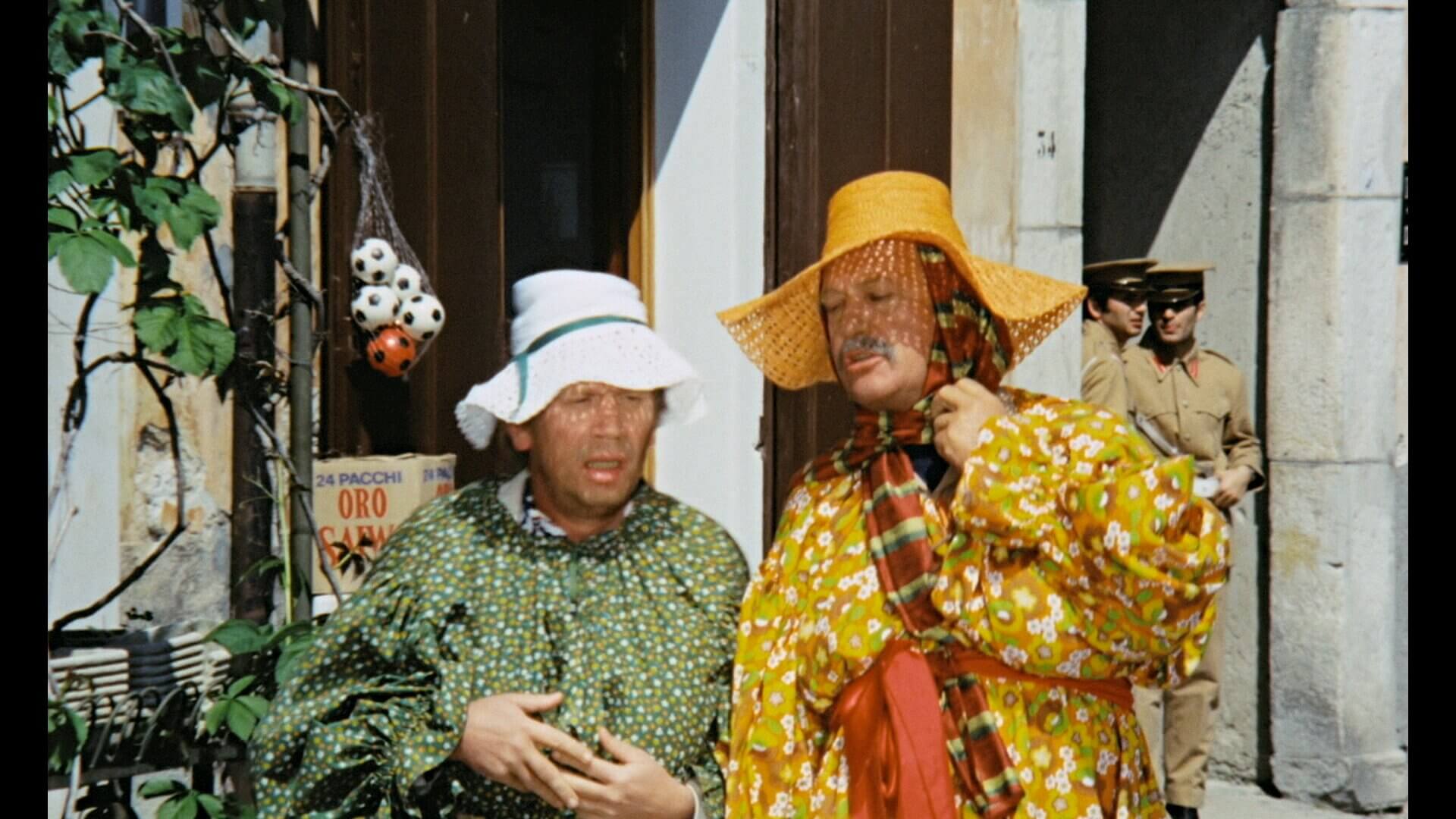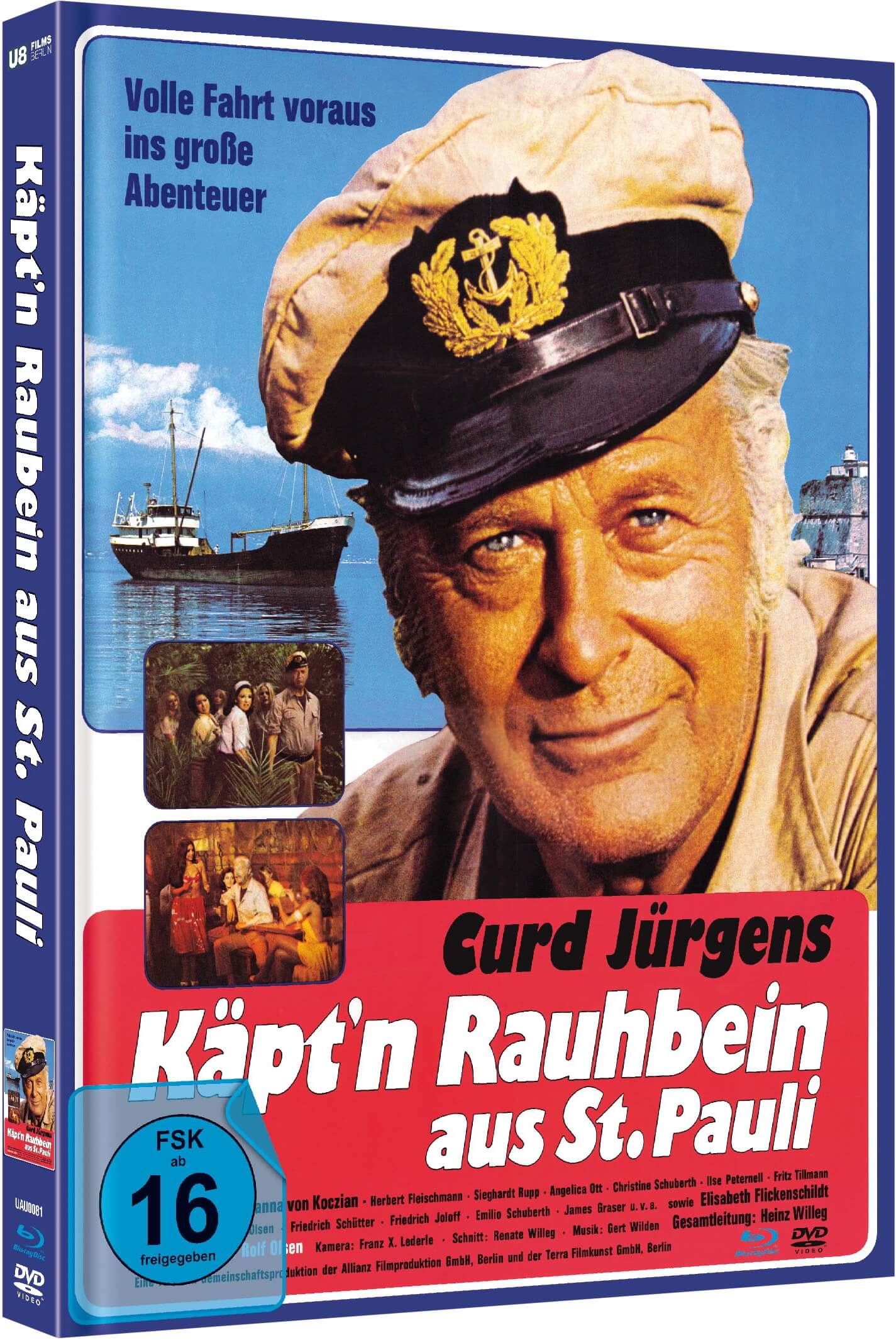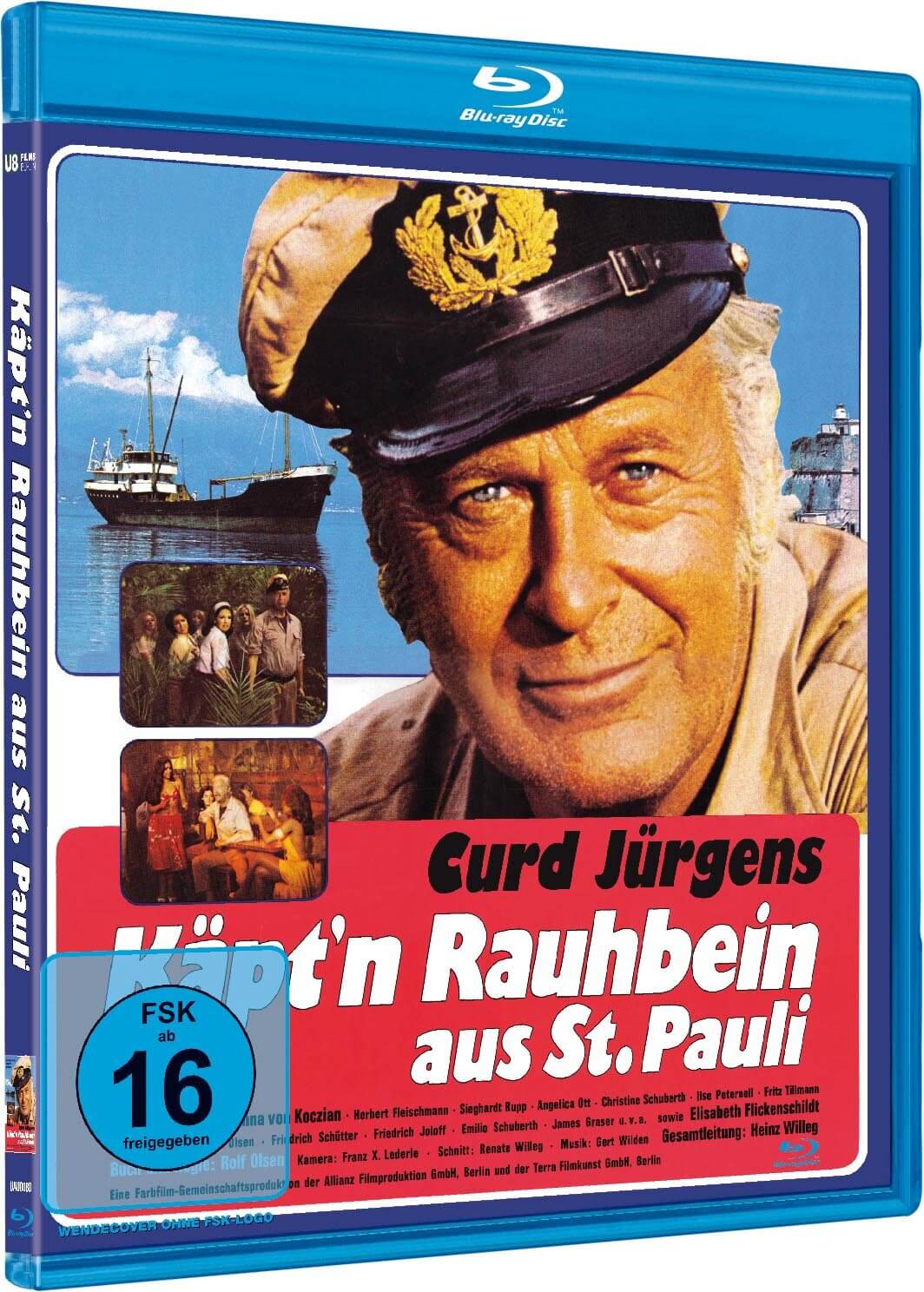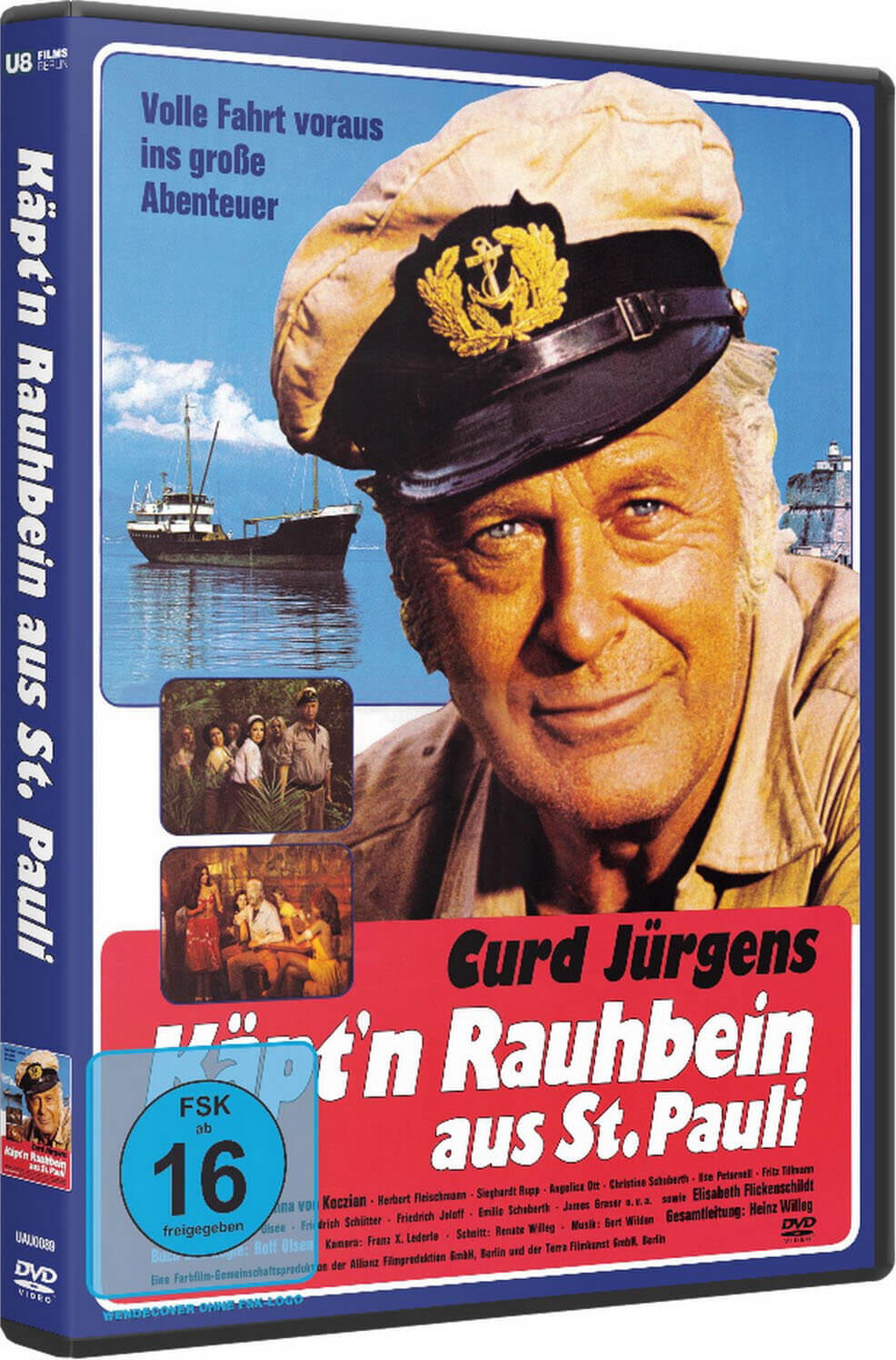Original title: Käpt’n Rauhbein aus St. Pauli
Director: Rolf Olsen
Screenplay: Rolf Olsen
Actors: Curd Jürgens, Heinz Reincke, Johanna von Koczian, Herbert Fleischmann, Sieghardt Rupp, Elisabeth Flickenschildt, Angelika Ott, Christine Schuberth, Ilse Peternell, Fritz Tillmann, Gerhart Lippert, Friedrich Joloff, Rolf Olsen, Emilio Schuberth, James Graser, Poldo Bendandi, Beryl Cunningham, Gerda-Maria Jürgens, Giulio Marchetti, Lenka Novak, Janine Reynaud, Bill Vanders
Producer: Heinz Willeg, Samuel M. Sherman
Camera: Franz Xaver Lederle
Editing: Renate Willeg
Music: Gert Wilden
Production Companies: Terra-Filmkunst, Allianz Filmproduktion
Production Year: 1971
Genres: Adventure
Country: Germany
Language: German
Dubbing: Italian, German
Location: Puerto Rico
Length: 91 min
FSK: 16
Aspect ratio: 1.66 : 1
Sound Mix: Mono
Resolution: Full HD (new 4K scanning)
Other titles:
German: Käpt´n Rauhbein aus St. Pauli
Canada: Captain Typhoon
French: Un ours mal léché
Greek: Kaftes nyhtes stin agria zougla
Film label: U8 Films Berlin
Theatrical release: August 26, 1971
Mediabook (Blu-Ray+DVD): October 14th, 2022
DVD & Blu-Ray: October 14th, 2022


